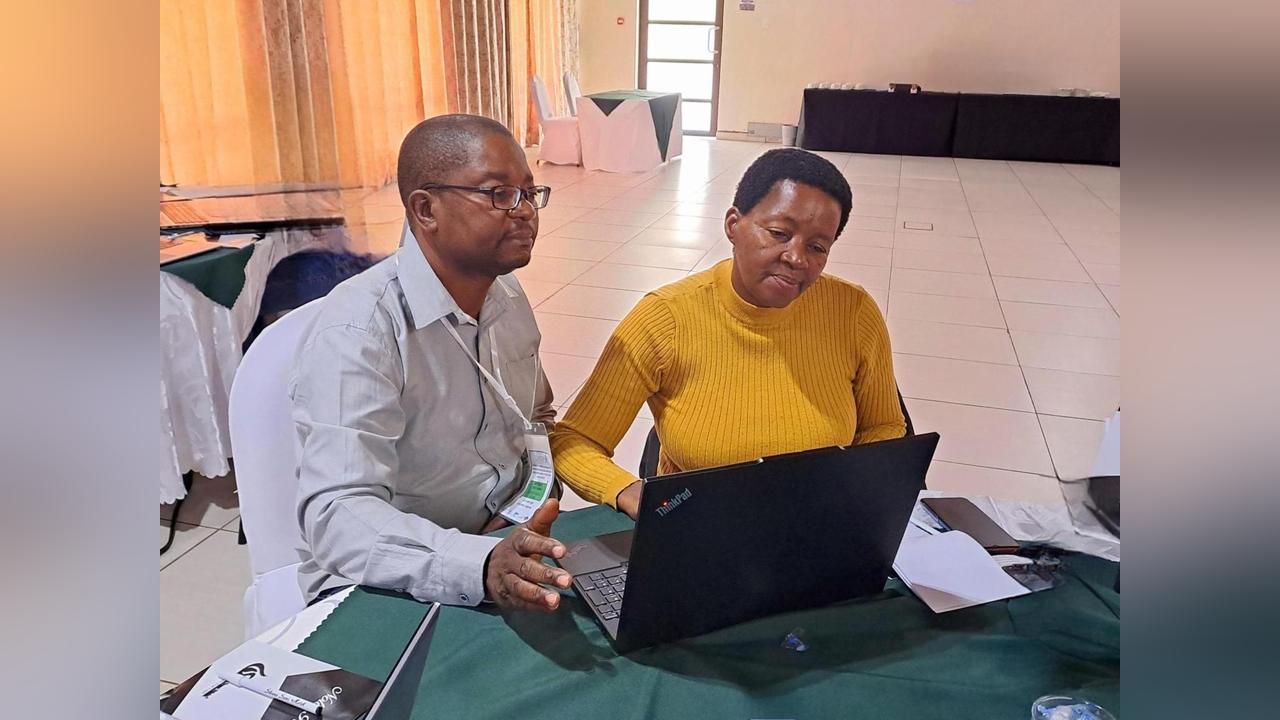Africa-Press – Eswatini. In a “Nkwe” step toward climate-smart agriculture, Eswatini has enhanced the process of agrometeorology systems.
The enhancement of the tools for modelling is to give farmers access to more accurate, timely weather data to guide planting, harvesting, and disaster preparedness.
This was made possible by the Ministry of Agriculture, through the support of the Centre for Coordination of Agricultural Research and Development for Southern Africa (CCARDESA) and funding of the Accelerating Impact of CGIAR Climate Research for Africa (AICCRA).
With climate change reshaping rainfall patterns and increasing uncertainty in the fields, the new technologies aim to turn forecasts into powerful tools for food security and resilience.
According to Science Direct, agrometeorology is the study and application of meteorology to agriculture, focusing on the interactions between weather conditions and agricultural practices.
It helps farmers make informed decisions to optimise crop yields and manage weather-related risks, enhancing food security and sustainable farming.
The Kingdom of Eswatini’s agrometeorology technologies for modelling is being sharpened at the ongoing ‘Training of Trainers Workshop on Enhancing Forecasting Capacities and Developing Crop Capability Prediction Tools’.
The workshop brought together experts specialising in meteorology, climate science, agricultural research, academia, disaster risk reduction, early warning systems, and policy development from across the SADC region.
The aim of the training of trainers (experts) is to strengthen regional capacity in climate-smart agriculture by equipping participants with practical tools to forecast crop performance, improve decision-making, and boost productivity.
The outcomes of this workshop will directly benefit farmers through better early warning systems and more precise guidance on input use in the face of climate change.
Smart Forecasting- Eswatini enhances agrometeorology.CCARDESA Executive Director Professor Cliff Dlamini making his remarks.
In his welcome remarks, during the opening ceremony, Minister of Agriculture Mandla Tshawuka discussed the workshop’s role in managing climate risks and thanked CCARDESA, for regional support.
The Minister then reaffirmed the government’s climate commitment under the “Nkwe” mandate and urged the adaptation of tools, timely advisories, and farmer access to information.
“The Government of Eswatini is committed to addressing climate change with the seriousness it warrants.
This commitment is integral to our “Nkwe” mandate, which is ending hunger and poverty in Eswatini in the shortest time possible, espoused by His Majesty King Mswati III.
It is also a tenet of all national development plans, as well as Sustainable Development Goals (SDGs).
“This tailor-made information will assist farmers to make management decisions that will minimise the risks, optimise benefits and take advantage of opportunities arising from the variable climate,” said the Minister.
Minister Tshawuka then urged the experts to ensure that models and tools espoused were adapted to the Eswatini scenario, the agricultural advisories are delivered timely manner, and that smallholder farmers and rural communities have access to the advisories.
In the meantime, the CCARDESA Executive Director, Professor Cliff Dlamini, shared insights on forecasting and agroecological zoning in Eswatini, stating that they needed to be reviewed. He said this in an interview during the training of trainers.
Professor Dlamini emphasised the shifting nature of weather patterns due to climate change. He acknowledged that weather forecasting may no longer be consistently accurate, urging farmers and agricultural stakeholders to adapt and build resilience.
The Executive Director also highlighted CCARDESA’s commitment to initiating regional dialogues on agroecological zones, as climate change continued to redefine seasons and geographical boundaries across Southern Africa.
“After this workshop, we still need to come back to Eswatini and have a serious discussion on geographical regions and their possible rezoning. Climate change has evolved everything we thought we knew and we should adapt accordingly,” said Dlamini.
The Centre for Coordination of Agricultural Research and Development for Southern Africa (CCARDESA) was founded by Southern African Development Community (SADC) member states to harmonise the implementation of agricultural research and development (R&D) in the SADC region.
CCARDESA intends to address agricultural research and design issues in the SADC region.
Worth noting is that so far, the CCARDESA has reached 4.61 million beneficiaries, 97,000 farmers have been trained, 3,720 value chain actors are accessing climate-smart agriculture and 41,300 farmers have been supported.
For More News And Analysis About Eswatini Follow Africa-Press







